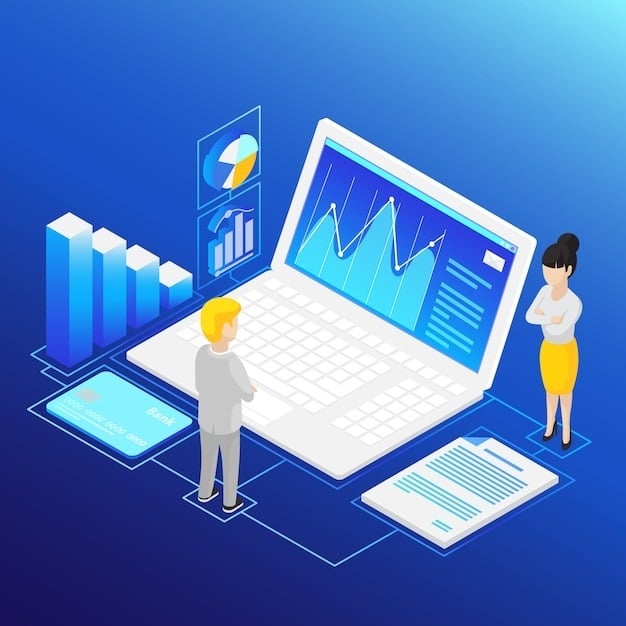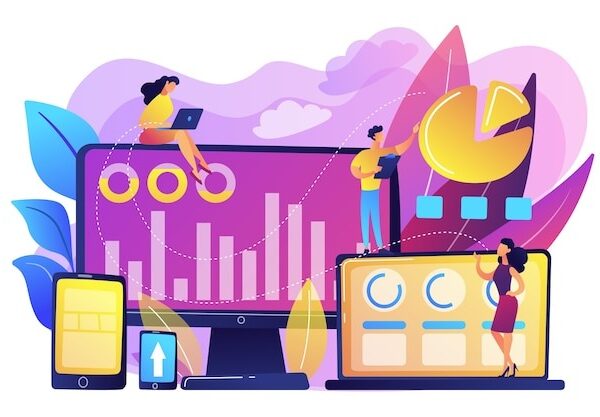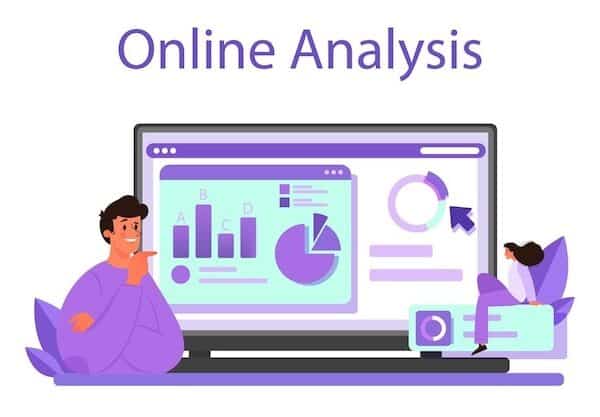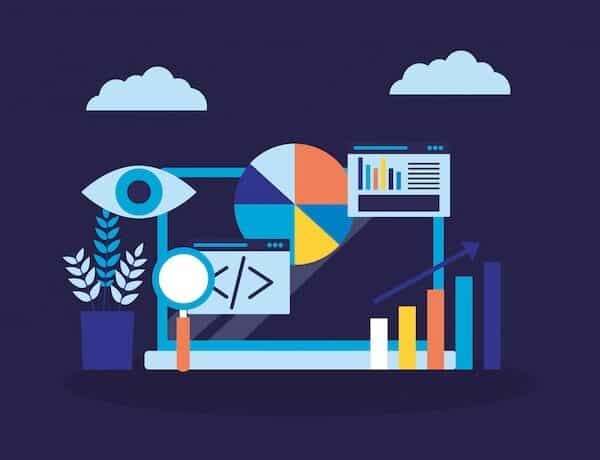Data Analytics vs Business Intelligence: Differences Guide

Data Analytics vs Business Intelligence: Differences Guide
Rapid Phone Center excels in Business Intelligence and Data Analytics, bridging the gap between Data Analytics vs Business Intelligence to deliver insights.
In today’s fast-paced digital landscape, the integration of business intelligence (BI) and data analytics is crucial for the success of companies like Rapid Phone Center. Understanding the nuanced differences and synergies between these two disciplines can empower your organization to leverage data for improved decision-making and strategic planning. This comprehensive guide will explore the key aspects of business intelligence and data analytics, their tools, software, and the role of artificial intelligence in transforming these fields.
At Rapid Phone Center, we excel in both data analytics vs business intelligence, providing comprehensive solutions to empower your business. Understand the difference: data analytics focuses on examining raw data for actionable insights, while business intelligence uses this data to inform strategic decisions. Partner with us to leverage cutting-edge technology for enhanced decision-making and a competitive edge.

Business Intelligence Analytics and Data Science: Harnessing Data for Strategic Decision-Making
Business Intelligence (BI) focuses on the past and present data to make informed business decisions. It involves data analysis, reporting, and the presentation of actionable information.
Data Analytics goes a step further by predicting future trends using statistical techniques and algorithms. While BI tells you what happened, data analytics explains why it happened and what could happen next. Discover the difference between Data Science vs Data Analytics. Unlock insights and boost your business with cutting-edge solutions!
- Scope: BI is descriptive, focusing on what has happened, while data analytics is predictive, focusing on future trends.
- Function: BI deals with data aggregation, visualization, and reporting. Data analytics involves complex algorithms and statistical models.
Business intelligence and data analysis work hand-in-hand to provide a holistic view of business performance. BI tools aggregate and visualize data, while data analysis dives deeper into the data to uncover patterns and insights.
Business Intelligence and Data Analytics Tools
Rapid Phone Center specializes in business intelligence data analysis and reporting, offering premier solutions to boost your business performance. Our expertise in data analysis uncovers key insights, while our business intelligence tools convert these insights into strategic decisions. With robust reporting capabilities, Rapid Phone Center ensures clear, actionable data to drive your business success.
Several tools and software are available to aid in business intelligence and data analytics:

- Power BI: A powerful tool by Microsoft that offers data visualization and BI capabilities.
- Tableau: Known for its robust data visualization features, Tableau helps in creating interactive dashboards.
- SAS Analytics: Provides comprehensive data management, advanced analytics, and BI capabilities.
- QlikView: Offers guided analytics and BI tools for business users.
Rapid Phone Center stands at the forefront of technological advancements, integrating both business intelligence vs data analytics. Our robust solutions enable businesses to distinguish between the two: business intelligence for strategic decision-making using historical data, and data analytics for real-time insights and predictive modeling. Harness our expertise to drive informed decisions and stay ahead of the curve.
Business Intelligence and Data Analytics Software
Rapid Phone Center specializes in business intelligence and big data analytics, offering innovative solutions to elevate your business operations. Our expertise helps you transform vast amounts of data into actionable insights, driving strategic decisions and improving efficiency. Harness the power of business intelligence and big data analytics with Rapid Phone Center to stay ahead in today’s competitive market. Transform your decisions with Business Data Analytics. Harness data to drive success and stay ahead in the competitive market!
Key Software Solutions:
- Microsoft Power BI: Integrates with various data sources and provides interactive visualizations.
- Tableau: Connects to multiple data sources and offers extensive data visualization capabilities.
- SAS: A leader in advanced analytics, SAS combines data management, analytics, and BI in one platform.

Big data analytics and business intelligence are converging to handle massive datasets and provide deeper insights. The integration of big data with BI allows businesses to process large volumes of data and derive meaningful insights.
Differences:
- Volume: Big data analytics handles vast amounts of data, whereas traditional BI may work with smaller datasets.
- Complexity: Big data analytics often involves more complex algorithms and infrastructure compared to traditional BI.
Data Analytics and Business Intelligence Solutions
Combining data analytics with business intelligence drives discovery and innovation by enabling businesses to:
- Identify Trends: Detect patterns and trends that inform strategic decisions.
- Optimize Operations: Improve efficiency by analyzing operational data.
- Enhance Customer Experience: Understand customer behavior and preferences.
Rapid Phone Center leads in data analytics business intelligence, providing cutting-edge solutions for your business needs. Our expertise helps you harness the power of data analytics to uncover actionable insights, while business intelligence transforms these insights into strategic decisions. Trust Rapid Phone Center to enhance your data-driven decision-making and drive your business success. Stay ahead with Real Time Data Analytics/Analysis. Make informed decisions, enhance strategies, and respond quickly to market changes.
Artificial Intelligence and Data Analytics
Artificial intelligence (AI) is revolutionizing data analytics by automating data processing and providing advanced predictive capabilities. AI algorithms can analyze large datasets quickly and accurately, uncovering insights that would be impossible for humans to detect. Leverage Marketing Data Analytics to boost your campaigns, understand customer behavior, and drive growth effectively!

Applications:
- Predictive Analytics: AI models predict future outcomes based on historical data.
- Natural Language Processing: AI can interpret and analyze human language data, enhancing customer service and sentiment analysis.
Rapid Phone Center excels in data analysis and business intelligence, delivering top-notch solutions to enhance your business operations. Our advanced data analysis techniques uncover critical insights, while our business intelligence tools transform these insights into strategic actions. Partner with Rapid Phone Center to leverage data-driven decisions and propel your business towards greater success. Supercharge your outbound sales with our expert solutions. Reach more customers, close more deals, and grow your business today!
Difference Between Data Analytics and Business Intelligence
Data science, business intelligence, and data analytics collectively drive innovation and strategic planning. Data science applies advanced algorithms and machine learning to uncover insights, while BI and data analytics focus on visualizing and interpreting these insights for business use.
Strategic Importance:
- Holistic View: Combining these disciplines provides a comprehensive view of business performance.
- Informed Decisions: Enables data-driven decision-making across the organization.
Understanding the interplay between business intelligence and data analytics is essential for Rapid Phone Center to stay competitive. By leveraging advanced tools, integrating big data, and embracing artificial intelligence, your organization can transform data into actionable insights, driving growth and innovation. This guide serves as a roadmap to navigate the complex landscape of BI and data analytics, ensuring you harness the full potential of your data assets.

Rapid Phone Center: Leveraging Data Analytics and Business Intelligence for Success
In today’s digital age, companies that leverage data effectively are positioned to outperform their competitors. At Rapid Phone Center, we understand the transformative power of data analytics and business intelligence (BI) tools. This guide delves into the various facets of data analytics and business intelligence software, highlighting their impact, the differences between related concepts, and how they drive discovery and innovation within our company.
Data Analytics refers to the process of examining datasets to draw conclusions about the information they contain, using specialized systems and software. It involves the application of algorithms and mechanical processes to derive insights from raw data. Maximize your lead generation efforts with our expert solutions. Attract, engage, and convert more prospects into loyal customers!
Business Intelligence (BI), on the other hand, involves the use of data analytics tools and techniques to transform data into actionable insights that inform business decisions. BI encompasses data mining, process analysis, performance benchmarking, and descriptive analytics.
Data Analytics and Business Intelligence Tools
At Rapid Phone Center, we utilize a suite of data analytics and business intelligence tools to optimize our operations and enhance customer experience. These tools help us analyze customer data, predict market trends, and improve our service delivery.
The integration of data analytics and business intelligence software in our operations allows us to seamlessly gather, process, and analyze data. This software helps us in decision-making processes by providing real-time data insights.
Our business intelligence and data analysis software supports a range of functions, including reporting, online analytical processing, analytics, data mining, and complex event processing. These tools enable us to understand our business metrics better and make informed decisions.

While both big data analytics and business intelligence aim to leverage data for insights, they differ in scope and methodology:
- Big Data Analytics focuses on analyzing large volumes of data to uncover patterns, trends, and associations, especially relating to human behavior and interactions.
- Business Intelligence is more about leveraging data to make strategic business decisions. BI tools typically involve the analysis of structured data from within an organization.
Big Data Business Intelligence and Data Analytics
Big data business intelligence combines the principles of BI with big data analytics, offering comprehensive insights that drive business strategies. At Rapid Phone Center, we use big data BI to enhance our understanding of customer needs and optimize our services.
In practice, big data analytics often deals with unstructured data from various sources, requiring advanced analytical techniques. Business intelligence typically involves more structured datasets and focuses on historical data to drive business decisions. Elevate your customer experience with our omnichannel customer service. Seamless support across all platforms, anytime, anywhere!
Data Analytics and Business Intelligence Solutions
Our data analytics and business intelligence solutions are designed to provide comprehensive insights into our business operations. These solutions help us in identifying inefficiencies, predicting customer needs, and formulating strategies for improvement.
Leveraging business intelligence and analytics enables us to transform big data into significant business impacts. By analyzing large datasets, we can make data-driven decisions that enhance our operational efficiency and customer satisfaction.
At Rapid Phone Center, we use SAS analytics business intelligence and data management tools to manage our data effectively. These tools help us in data integration, quality management, and analytics, ensuring we have accurate and actionable data at our disposal.

Data Analytics in Business Intelligence
Artificial intelligence (AI) plays a crucial role in our data analytics processes. By integrating AI into our data analytics, we can automate complex processes, uncover deeper insights, and enhance predictive analytics.
Incorporating artificial intelligence in data analytics allows us to process vast amounts of data quickly and accurately. AI algorithms help us identify patterns and trends that might be missed by traditional analytics methods.
Rapid Phone Center pioneers artificial intelligence data analytics to revolutionize telecom operations. We harness AI’s capabilities to analyze vast datasets swiftly, extracting valuable insights for informed decision-making. Our advanced solutions optimize efficiency and customer experiences, ensuring competitive advantage in the dynamic telecommunications landscape. Discover how AI-driven analytics propel Rapid Phone Center’s commitment to innovation and excellence.
Data Analytics Artificial Intelligence
Combining data analytics and artificial intelligence enables us to leverage the strengths of both fields. AI enhances our data analytics capabilities, allowing for more sophisticated analysis and better decision-making.
At Rapid Phone Center, data analytics and business intelligence are driving discovery and innovation. By harnessing the power of data, we can explore new opportunities, develop innovative solutions, and stay ahead of the competition.
Business Intelligence Strategy and Big Data Analytics
Our business intelligence strategy is closely aligned with our big data analytics initiatives. This alignment ensures that we can leverage our data assets to their fullest potential, driving strategic decision-making and business growth.

To reiterate, the primary difference between business intelligence and data analytics lies in their focus and application. BI is more about making informed business decisions based on historical data, while data analytics encompasses a broader range of techniques, including predictive and prescriptive analytics.
Rapid Phone Center specializes in business intelligence data analytics, utilizing cutting-edge tools to extract actionable insights. Our tailored solutions empower telecom businesses with strategic decision-making capabilities and operational efficiencies. Explore how our expertise in BI data analytics enhances performance and drives sustainable growth in the telecommunications sector.
What is the Difference Between Business Intelligence and Data Analytics?
Understanding what is the difference between business intelligence and data analytics is crucial for leveraging their benefits. BI focuses on operational insights and strategic decisions, whereas data analytics often includes a broader set of techniques for exploring and predicting future trends.
At Rapid Phone Center, we harness the power of business intelligence and analytics from big data to big impact. Our expertise transforms complex data into actionable insights, driving strategic decisions and operational efficiencies within the telecommunications industry. Discover how we optimize performance and propel growth with our innovative data-driven solutions.
What is Data Analytics and Business Intelligence?
In essence, data analytics and business intelligence involve using data to gain insights and make informed business decisions. They are integral to our operations at Rapid Phone Center, helping us enhance efficiency, improve customer experience, and drive business growth.
Rapid Phone Center excels in leveraging big data analytics vs business intelligence to optimize operations. We harness big data’s depth for predictive insights, contrasting with BI’s agility in real-time decision-making. Discover how our integrated approach enhances efficiency and strategic decision-making in telecommunications.

What is Business Intelligence and Data Analytics?
At Rapid Phone Center, business intelligence and data analytics are not just buzzwords; they are core components of our strategy. By integrating these tools and techniques, we can better understand our business environment, anticipate market changes, and respond proactively.
Rapid Phone Center, recognizes the transformative power of data analytics and business intelligence. By leveraging advanced tools and techniques, we can drive discovery, foster innovation, and stay ahead in a competitive market. Whether it’s through understanding the difference between big data analytics and business intelligence, or integrating AI into our data processes, we are committed to using data to its fullest potential to achieve business success.
FAQs for Business Intelligence and Data Analytics
Discover Rapid Phone Center: your expert guide to FAQs for Business Intelligence and Data Analytics solutions tailored to your business needs.
What is Business Intelligence (BI)?
Business Intelligence involves the strategies and technologies used by enterprises for data analysis of business information to support decision-making.
What are the key components of Business Intelligence?
BI typically includes data warehousing, data integration, analytics tools, dashboards, and reporting capabilities.
What is the difference between Business Intelligence and Data Analytics?
Business Intelligence focuses on descriptive analytics, reporting, and historical data analysis, while Data Analytics encompasses a broader range, including predictive and prescriptive analytics.

How does BI benefit organizations?
BI helps organizations gain insights into their business operations, identify trends, optimize processes, improve decision-making, and achieve competitive advantage.
What are some popular BI tools?
Popular BI tools include Tableau, Power BI, QlikView, Looker, and Google Data Studio, among others.
You might also find our article intriguing:
Good Luck to You





